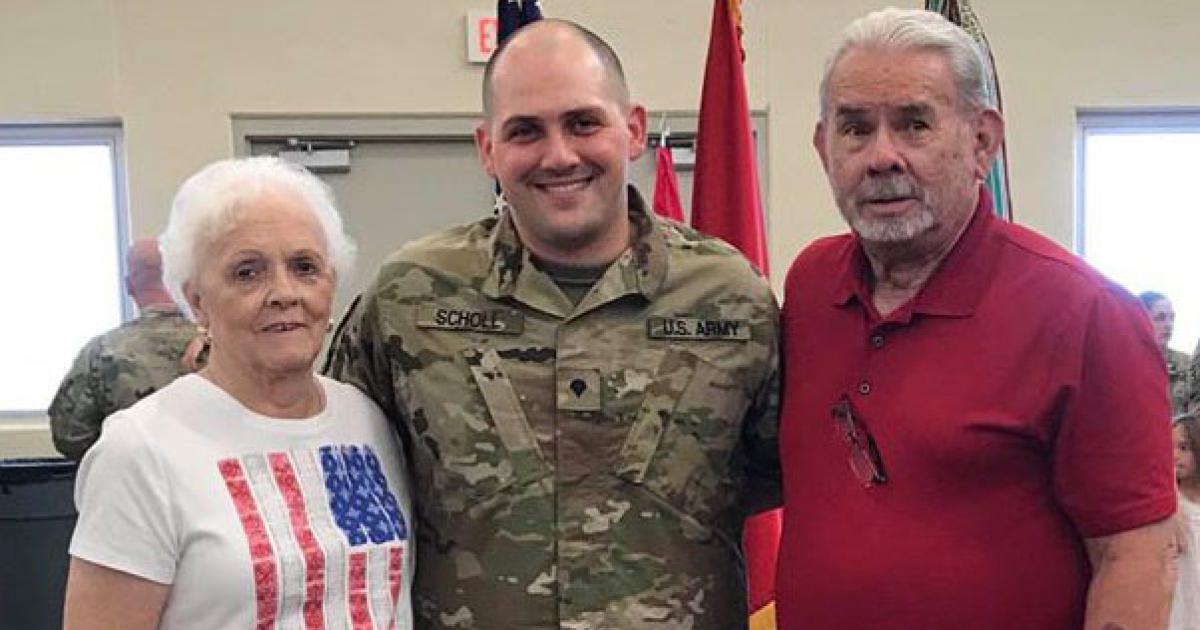Sinus pain? When to seek medical advice

Sharon Scholl can remember having allergy problems since she was a young girl. Come spring and fall, the drippy nose, sneezing, headaches and facial pain would begin. As she got older, it would start with allergy symptoms and progress to sinusitis.
“It was so bad that many times I’d end up in the hospital a couple times a year,” recalls Scholl. “I’d have allergies year round, but in the spring and summer, they got worse. I’d have to limit my time outdoors in the spring and fall or I’d pay for it later. By the time I was an adult, I didn’t know what it was like not to live with allergies.”
Our ENT specialists can treat common to more complex sinus issues. Call 800.922.0000 to schedule an appointment.
Scholl, now 77, says she has undergone six surgeries over her adult years to resolve her chronic sinus issues. The surgery would help for a while and then the symptoms would return again.
Several years ago, Scholl developed a tremendous headache that wouldn’t let up. Initially, she was told it was a temporomandibular joint (TMJ) disorder and was sent home with instructions to wear a mouth guard while sleeping.
But her headache persisted over the next week. When her eye became swollen shut, she went to another doctor who ordered a CT scan. Soon after, Scholl was sent to her local hospital in Hastings, Nebraska. The infectious disease doctor there recommended she be taken by ambulance to the Nebraska Medical Center in Omaha, Nebraska.
“When I got to Omaha, I was immediately started on IV antibiotics,” recalls Scholl. “The next thing I knew, I was being introduced to Dr. Barnes and getting prepped for surgery.”
“Sharon had extensive sinus disease that had eroded the wall between the eye and the sinuses,” says Christie Barnes, MD, Nebraska Medicine ear, nose and throat specialist. “The infection and inflammation involved her eye and the optic nerve that provides vision. When it impacts the optic nerve, we don’t mess around. If there is any compromise of vision, it needs to be addressed very rapidly or it could result in permanent vision loss.”
Scholl had a window of about 12 hours before she might experience permanent damage. Dr. Barnes knew she had to act quickly.
Scholl was in surgery within a couple hours. Dr. Barnes performed a noninvasive, endoscopic surgery, typically an outpatient procedure, which involves opening the blocked sinuses with small instruments that go through the nostrils. The instruments can be used to remove tissue, polyps and bony partitions that cause nasal blockage and help to enlarge a narrow sinus opening to promote drainage.
In Scholl’s case, the sinuses on the infected side were opened, the infected mucous was drained and she was treated with IV antibiotics. Dr. Barnes also straightened the septum and cleaned out the rest of the sinuses.
“I was really able to get the sinuses widely opened, which allowed me to improve the ability to drain the infection,” says Dr. Barnes. “Polyps that were blocking the sinuses were also removed which allowed Sharon to deliver long-term topical medications to the area to prevent the polyps from developing again.”
After surgery, Scholl still couldn’t see for several days and then she began seeing double. “It was a scary time,” says Scholl. “I was concerned I might be blind.”
Ophthalmologist Shane Havens, MD, monitored Scholl’s eye condition in the hospital over the next several days. By the end of the week, Scholl’s eyesight had returned. “Everyone took such good care of me,” says Scholl. “They were very attentive, always checking on me and making sure I was fed.”
Now, nearly five years later, Scholl says her condition is the best it’s been for most of her life. “I still get sinusitis, but it’s not as bad and I can treat the symptoms with a nasal spray and nasal rinse. And the best part, I haven’t had to be hospitalized again.”
Sinus problems are one of the most common reasons people go to a doctor, but only a small percentage will actually require surgery to relieve their condition. Most people with acute sinusitis will get relief with a combination of antibiotics, decongestants, nasal steroid sprays and saline rinses.
When to seek medical advice
Some of the most common causes of sinus infections include chronic allergies, colds, polyps or a deviated septum. Common symptoms of a sinus infection include:
- Persistent nasal drainage that is not clear and has turned a brown, gray, yellow or green hue
- A cough that’s productive
- Facial pain or pressure, headaches, fever
- Decrease in your sense of smell and taste
- Inability to breathe through your nose accompanied by a fever (a cold is more likely to be accompanied by a sore throat)
Most bacterial sinus infections will not clear up on their own. If symptoms continue past 10 days, you should see your doctor or an ENT specialist. If left untreated, a bacterial sinus infection can lead to meningitis, or possibly a brain or eye abscess as it did for Scholl.
“Chronic sinus infections can be painful, uncomfortable and debilitating,” says Dr. Barnes. “Our goal is to help you get better and improve your quality of life.”





